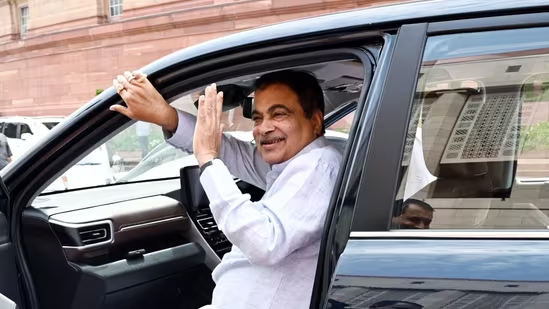
India
Union Minister for Road Transport and Highways, Nitin Gadkari, has taken a sharp dig at the United States over its recent tariff actions against India, calling them a form of “dadagiri” (bullying). His remarks come at a time when trade relations between the two countries are under strain due to rising protectionist policies and retaliatory tariff measures.
Backdrop of the Tariff Tensions
The tensions were sparked after the US imposed steep import tariffs on several categories of Indian goods, citing trade imbalances and alleged unfair practices. India, in turn, has been considering reciprocal measures to protect its domestic industries. The dispute has escalated in recent weeks, particularly after the US targeted key sectors like steel, aluminum, and certain agricultural products that are significant to India’s export basket.
President Donald Trump’s earlier stance on imposing higher tariffs has been followed through with renewed trade restrictions under the current administration, aimed at safeguarding American manufacturers. However, India argues that these moves violate the spirit of fair trade and mutual respect between the two democracies.
Gadkari’s Strong Words
Addressing an event in Nagpur, Gadkari minced no words in criticising the US approach. “This is nothing but dadagiri. In a global economy, such arm-twisting tactics are unacceptable,” he said, adding that India has the strength and resources to stand its ground against any economic pressure.
He emphasised that while India respects all its trade partners, it will not bow down to unjust demands or unfair trade barriers. “We want friendship and cooperation, not dominance and threats,” Gadkari noted, reiterating that India’s policy should be based on mutual benefit and equality.
Impact on Indian Industry
The US tariffs have caused ripples across multiple Indian industries. Steel and aluminum exporters are among the worst hit, as they now face reduced competitiveness in the US market due to higher import duties. The agricultural sector, especially producers of rice, spices, and processed foods, is also bracing for potential losses if retaliatory measures from India escalate the dispute.
Industry bodies like the Federation of Indian Export Organisations (FIEO) have expressed concern over the impact on jobs, foreign exchange earnings, and bilateral trade volumes. They have urged the government to negotiate a fair settlement while safeguarding domestic interests.
India’s Possible Response
Government sources indicate that India is preparing a list of American goods that could face higher import duties if Washington does not roll back or soften its tariff stance. Products like almonds, apples, walnuts, and certain industrial equipment may be targeted in a tit-for-tat move.
However, trade analysts caution that a prolonged tariff war could hurt both economies, especially in sectors where supply chains are deeply interlinked. They recommend a mix of diplomacy and assertiveness to de-escalate the situation without undermining long-term trade relations.
The Geopolitical Angle
The tariff spat is not just about economics—it also carries geopolitical undertones. With China and the US already embroiled in a trade war, Washington has been seeking stronger economic and strategic ties with India to counter Beijing’s influence in the Indo-Pacific. However, aggressive trade actions risk straining this strategic alignment.
Gadkari’s comments reflect growing frustration within the Indian political establishment over what is perceived as inconsistent US policy—seeking India’s cooperation on strategic matters while taking a hard line on trade.
Calls for Self-Reliance
In his speech, Gadkari also used the occasion to highlight the importance of Aatmanirbhar Bharat (self-reliant India). He argued that India must strengthen its domestic manufacturing base, diversify export markets, and reduce overdependence on any single country. “When we become strong from within, no one can dictate terms to us,” he remarked.
He also stressed on infrastructure development, innovation, and technological advancement as key enablers for India to compete globally without succumbing to external pressures.
Trade Experts Weigh In
Experts believe that while Gadkari’s ‘dadagiri’ remark is politically charged, it underlines a broader sentiment within India about the need for fairer trade rules. According to Dr. Arvind Panagariya, former Vice-Chairman of NITI Aayog, “Trade disputes are normal, but they must be resolved through negotiation rather than coercion. Name-calling may make headlines, but structured dialogue is the only sustainable path forward.”
Similarly, global trade consultant Neha Malhotra points out that such public statements can also serve as a negotiation tactic, signalling to the other side that India will not shy away from taking a firm stand.
The Road Ahead
The India-US tariff dispute is likely to remain a key talking point in the coming months, especially with both nations heading into politically sensitive periods. While Washington’s actions may be driven by domestic political considerations, New Delhi’s response will balance firmness with pragmatism.
For now, Gadkari’s fiery words have added a new dimension to the debate, resonating with those who believe India should take a tougher stance on the global trade stage. Whether this leads to a breakthrough or further escalation will depend on behind-the-scenes diplomacy in the days to come.
Thanks For Reading